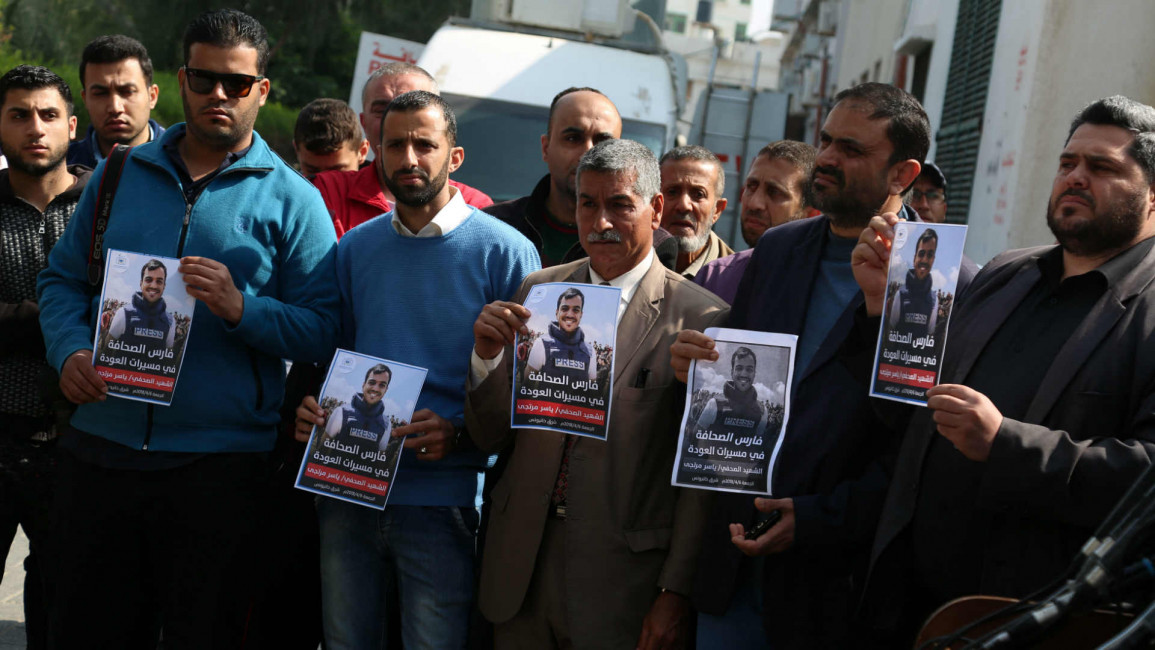
Censorship, threats, death: Palestinian journalism under triple threat
The killing of two Gaza journalists, shot by sniper fire as they covered the Great Return March protests clad in their easily identifiable blue press jackets, unleashed righteous fury as well as two examples of Israel’s deliberate targeting of the Palestinian press.
Yasser Murtaja, 30, who was shot dead on April 6, had been approved for a US funding grant for his production company Ain Media, and died two days before he was meant to start a new job making videos for the Norwegian Refugee Council.
Ahmed Abu Hussein, 25, died on April 25 after his treatment for gunshot wounds was delayed when he was initially refused transfer to Ramallah, as Gaza’s under resourced hospitals, inundated with wounded protesters, had no means to treat his injuries.
The brutal and calculated killings of two bright young Palestinians, along with dozens more journalists wounded, all armed with just their cameras, symbolises the Israeli government’s intent to discredit those who dare to speak of their reality under occupation and siege, and to neutralise brave individuals who possess the potential to shake-up the stagnating state of affairs.
Read more: Nothing to report here: Israel's persecution of Palestinian journalists
To add insult to injury, just two weeks ago Israeli authorities shuttered a Palestinian youth media organisation which trains young journalists in East Jerusalem, citing baseless allegations of “terrorism” - a term used so often by Israeli and authoritarian regimes alike, it has ceased to carry meaning.
The visible and overbearing persecution of Palestinian journalists by Israel can overshadow the multitude of threats they face.
The killing of Yasser Murtaja, for example, was justified as soon as it hit the headlines by allegations he was a “paid member of Hamas”. The strict vetting process required for his US grant suggested otherwise, and a report later revealed that Murtaja had been detained and beaten by Hamas after he wouldn't hand over footage they demanded.
Both Hamas and the Palestinian Authority have been criticised for infringing on freedom of speech, both known to have detained, intimidated and silenced media figures who speak out against corruption and poor governance. The PA have been busy enshrining censorship into law, threatening those who "violate the public order and morals" with five years in prison.
Read more: The importance of normalising Palestine
Threatened on all fronts, many would have given up where Murtaja persisted. His window of opportunity, the grant provided by USAID, is now too under threat by Trump’s sweeping aid cuts and visible disregard for the people of Palestine.
No wonder then that in 2015, 80 percent of Palestinian journalists admitted to practising self-censorship, with the current figures thought to be even higher due to heightened political tensions.
Navigating the multiple frontiers to honest and accurate reporting proves to be a deadly game in occupied Palestine and this World Press Freedom Day we salute those who continue to stand up for truth and integrity.




